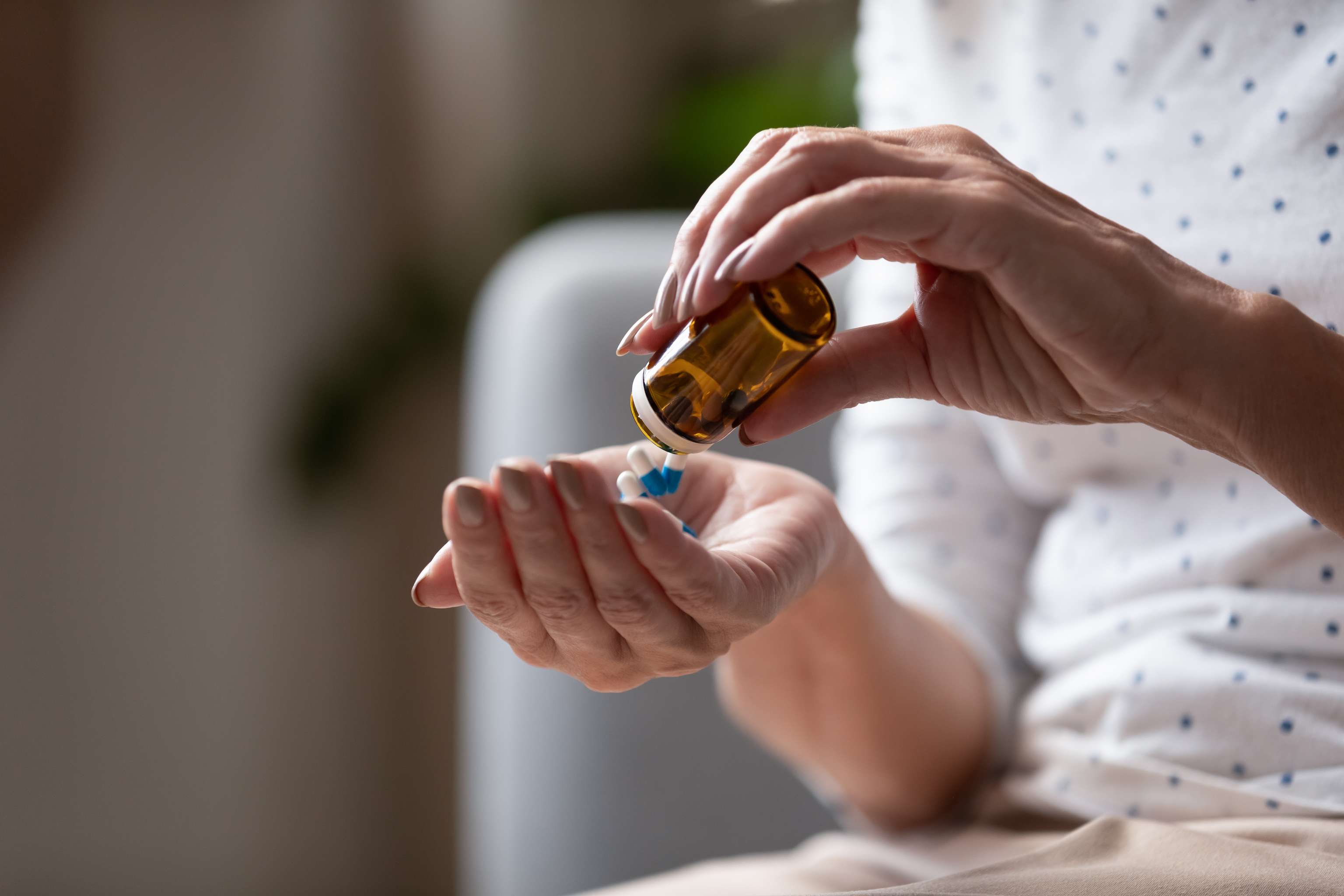New active ingredient possibly lowers cholesterol

Hypercholesterolemia:
Hypercholesterolemia is a type of metabolic disorder of the body in which the amount of cholesterol in the blood is increased. Cholesterol is a vital natural substance of animal cells and is of great importance for the construction of the cell membrane. Cholesterol is also important for the production of bile acid, which is needed for fat digestion in the intestines, and for the synthesis of sex hormones such as testosterone and progesterone. Our stress hormone cortisol, as well as aldosterone, messenger for the body's water and salt balance, are also made up of this important natural substance.
In the human body, cholesterol is largely formed in the liver and intestinal mucosa (i.e. cholesterol synthesis). As an intermediate product of this process, a substance is formed as a precursor to vitamin D (i.e. 7-dehydrocholesterol).
Blood cholesterol levels:
Typically, the total cholesterol level in our blood should be below 200 milligrams of cholesterol per deciliter. A slightly elevated level in the range of 200-239mg/dl is considered borderline. At levels above this limit, doctors refer to it as hypercholesterolemia.
Composition:
Total cholesterol is composed of.
- HDL cholesterol (high density lipoprotein),
- LDL cholesterol (low density lipoprotein) and
- neutral fats (i.e. triglycerides).
LDL plays a particularly important role, as this so-called "bad" cholesterol transports natural cholesterol from the liver via the blood to the other cells of the body. The higher the LDL level, the higher the cholesterol level. Hypercholesterolemia itself does not cause any symptoms. However, high levels in the long term can cause serious consequences. An excess of this substance can be deposited in blood vessels and lead to arteriosclerosis. HDL cholesterol is transported back to the liver and thus has a counteracting effect.
If the elevated cholesterol level cannot be lowered enough by a change in lifestyle or diet, in most cases only a cholesterol-lowering preparation, often so-called statins, is prescribed by the doctor for treatment. If this is not sufficient, the dose is increased and subsequently the therapy is extended by other drugs.
Effect of Bempedoic Acid:
As a prodrug (i.e., inactive pharmacological substance), bempedoic acid is specifically converted in the liver to the active form, also called bempedoyl-CoA. This active compound inhibits an enzyme involved in cholesterol biosynthesis; subsequently, the plasma concentration of LDL cholesterol decreases.
Current Study:
Published in the New England Journal of Medicine in March 2019, this study compared this very molecule (bempedoic acid) in patients who showed elevated LDL cholesterol levels. In this randomized, double-blind, placebo-controlled, phase 3 trial, 2230 study participants were studied for 52 weeks who showed atherosclerotic cardiovascular disease, hypercholesterolemia, or both. In addition, patients were already receiving a maximum tolerated dose of statins and possessed an LDL cholesterol level of at least 70mg/dl.
1488 participants received bempedoic acid, while the remaining 742 were given placebo. While the primary endpoint was the safety of bempedoic acid, for the secondary primary endpoint, LDL cholesterol levels were measured at week 12.
After this period, LDL levels decreased by 19.2 mg/dl (i.e., 16.5%) from baseline (103.2±29.4ml/dl). There were no significant differences in the study group and placebo group in terms of overall adverse events (78.5% and 78.7%) and serious adverse events (14.5% and 14.0%). Adverse events have included discontinuation of therapy (10.9% and 7.1%) and increased incidence of gout (1.2 and 0.3%). Serious adverse events included "non-fatal stroke".
Conclusion:
In this 52-week study, bempedoic acid did not result in a significantly higher incidence of adverse events than placebo and, regardless of statin dose, lower LDL cholesterol levels. Since cholesterol is important for numerous metabolic processes in the human body, attention should be paid to an adequate lifestyle and diet, and in the case of hypercholesterolemia, a specialist should be consulted for advice on the right treatment method.
Sources
- Ray KK, Bays HE, Catapano AL, Lalwani ND, Bloedon LT, Sterling LR, Robinson PL, Ballantyne CM; CLEAR Harmony Trial. Safety and Efficacy of Bempedoic Acid to Reduce LDL Cholesterol. N Engl J Med. 2019 Mar 14
- Hypercholesterinänemie (Netdoktor)
- Welche Cholesterinwerte gibt es (Cholesterin neu verstehen)
- Bempedoinsäure ab Herbst verfügbar (Pharmazeutische Zeitung)

Danilo Glisic
Last updated on 06.01.2021
Your personal medication assistant
Browse our extensive database of medications from A-Z, including effects, side effects, and dosage.
All active ingredients with their effects, applications, and side effects, as well as the medications they are contained in.
Symptoms, causes, and treatments for common diseases and injuries.
The presented content does not replace the original package insert of the medication, especially regarding the dosage and effects of individual products. We cannot assume liability for the accuracy of the data, as the data has been partially converted automatically. Always consult a doctor for diagnoses and other health-related questions.
© medikamio